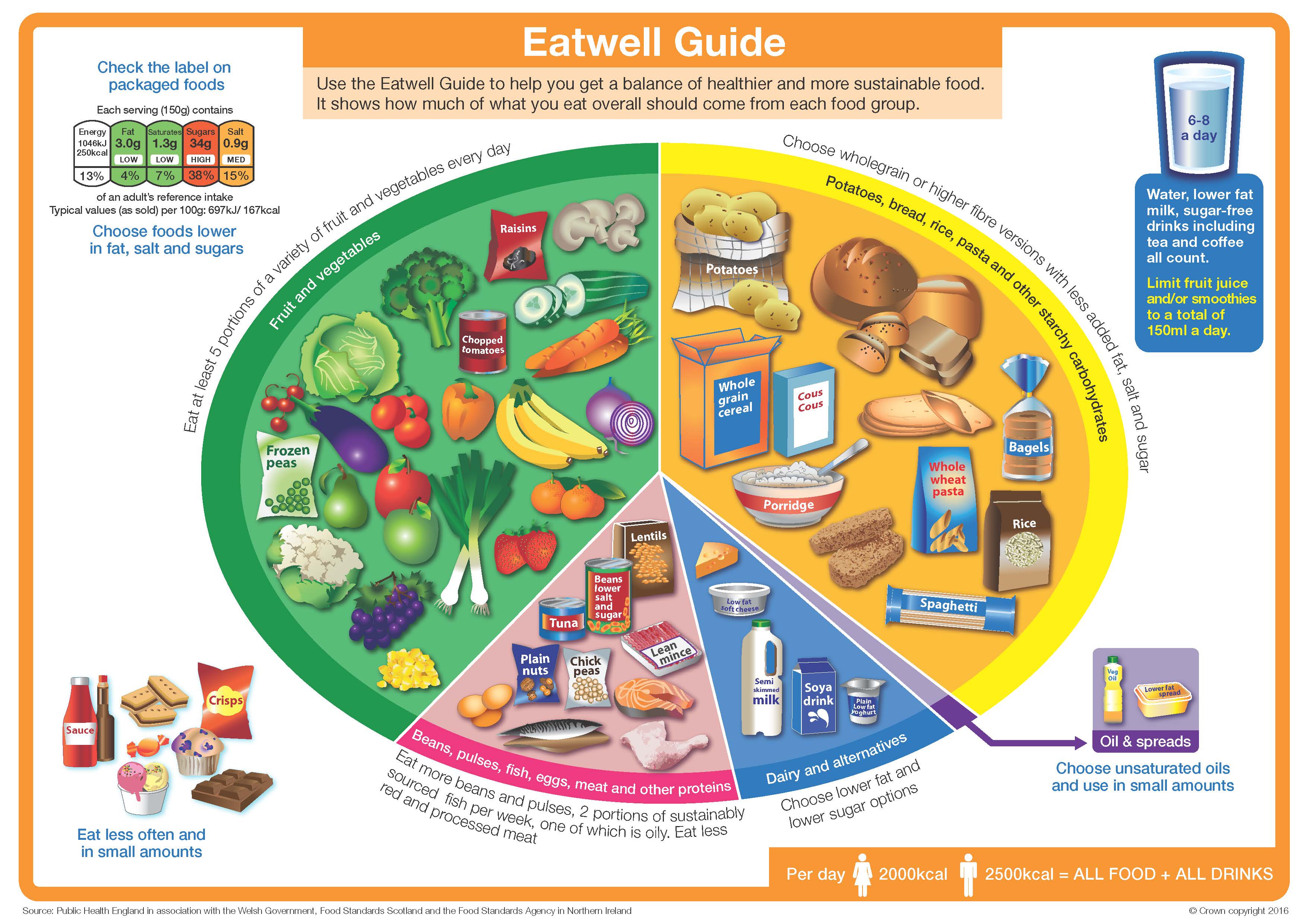 For most of us the phrase ‘healthy eating’ brings to mind advice to:
For most of us the phrase ‘healthy eating’ brings to mind advice to:
- eat ‘5 a day’,
- cut down on fatty and sugary foods,
- stick to safe alcohol limits
- keep weight under control.
This has been the expert consensus for at least two decades! The advice applies to young and middle aged adults. It is especially relevant to people with mental health conditions. Healthy eating helps to prevent early death from cancers, heart disease and stroke, which are more common in people with schizophrenia and other mental illnesses. It can also help prevent or manage obesity, diabetes, high cholesterol levels, osteoporosis, anaemia, dental disease constipation and haemorrhoids (or piles). The links below give lots more detail about healthy eating.
If it tastes good…
We all have busy lives – a hectic work and home life can all put pressure on our time – so choosing convenience seems sensible. And a healthy appetite’s a good thing isn’t it? But do we always make the right choices when it comes to food?
As NHS staff we’ve become good at spotting when service users’ health might benefit from a better diet but how about ourselves? We owe it to ourselves to give our own health some priority too. We already get a lot of messages about the importance of a healthy diet and perhaps it all seems a bit of a nag but it really is important stuff!
Making sure that you are eating five portions of fruit and vegetables a day makes a big difference to your health. Eating healthily is also about eating the right amount of food for your energy needs. The NHS “eat-well” plate recommends basing meals on around a third starchy foods (bread, rice, potatoes). Eating more fish, reducing fat, sugar and salt and drinking more water is the way to a healthy diet and, combined with enough physical activity, maintaining a healthy weight.
Eating more fruit and vegetables doesn’t have to be expensive; tinned, frozen and dried are just as good and it’s also cheaper to eat foods that are in season. Most of our salt intake comes from processed foods – so try to reduce these. You can reduce fat in your diet in a number of ways. By cutting off visible fat from meat, spreading fats more thinly and cutting down on fatty and sugary snacks.
Cutting out the junk food and making sure your diet is balanced means you will be avoiding unnecessary health risks and you will feel better too. If you’ve made positive changes to your diet and felt the benefits don’t be afraid of sharing with them patients, they’ve told us they appreciate advice from people that have made changes.
For more information about healthy eating see eatwell or NHS choices
For instance, did you know?
-
One in three deaths from cancer and one in three deaths from coronary heart disease are attributable to a poor diet
-
Reducing salt intake to the recommended 6gms a day for adults would contribute to a 17 per cent reduction in high blood pressure in the UK population
- In England only 26 per cent of people claim to eat 5-a-day – i.e. five portions of fruit and vegetables.
Click here for Your Guide to the Eatwell Guide
The Eatwell Guide: How to use it in promotional material

The Eatwell Guide:
- Meat, fish, eggs, beans and other non-dairy sources of protein
- Fruit and vegetables
- Food and drinks high in fat and/or sugar
- Milk and dairy foods
- bread, rice, potatoes, pasta and other starchy foods.
Christmas can cause a lot of anxiety within families where someone is living with an eating disorder. With pressure to eat lots of food and attend family and other social gatherings, it can be difficult not to feel anxious and overwhelmed at this time of year.
There are things you can do to reduce some of this anxiety. Read the advice of one of our eating disorders specialist nurses.
Drink
Here are some of the most important things to think about when it comes to the things we drink:
- Getting enough water and fluids: to stop dehydration, we need to drink enough liquid - about 6 glasses a day (1.2 litres).
- Reducing calorie intake: it's easy to overlook, but choosing healthier drinks is a key part of getting a balanced diet.
- Caffeine intake: caffeine is a stimulant. Drinks containing caffeine - like coffee, tea, cola and energy drinks - can temporarily make us feel more alert or less drowsy. Caffeinated drinks can also make the body produce urine more quickly. Caffeine affects some people more than others, and the effect can depend on how much caffeine you normally consume.
Learn more
Find out more by visiting the water, drinks and your health page on the NHS website.

